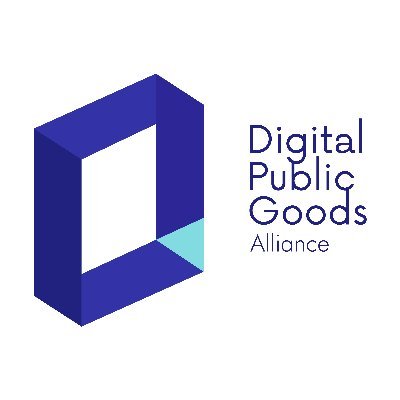Moving Towards Procurement Data Use in Uganda
Uganda’s procurement authority, the Public Procurement Disposal of Public Assets Authority (PPDA), is a pioneer in seeking to improve the use of public funds through open contracting. In collaboration with a local civil society partner, the Africa Freedom of Information Centre (AFIC), the PPDA recently began publishing procurement data in an open and structured format. By engaging civil society and using the Open Contracting Data Standard (OCDS), the PPDA has demonstrated commitment to open contracting and has taken steps to ensure that public funds actually meet citizen needs.
Through a grant from the Hewlett Foundation, Development Gateway (DG) recently began collaborating with both organizations to further support open contracting in Uganda, taking PPDA and AFIC’s efforts to the next level.
Figure 1: Construction site outside of Kampala, Uganda. Data for this – and all – Ugandan construction projects will soon be publicly available through the Uganda OCDS API.
DG will provide technical support to stabilize and enhance OCDS publication, and will work with procurement stakeholders to co-create tools to enhance data use. Our Procurement Monitoring & Evaluation and Corruption Risk dashboards demonstrate just how effective applying high-powered analytics to procurement data can be – allowing us to create and access knowledge that could not be applied otherwise.
To launch this exciting initiative and gain context on the existing in-country approach to collaboration, DG conducted an assessment mission to Uganda in December 2017. We also used the public API to access the PPDA’s procurement data, assessing its accessibility, quality, and usability for procurement analytics. Notable findings from the mission include the following:
How Stakeholders Use Procurement Data
For more than eight years, the PPDA has been using its data to gain a basic understanding of the country’s procurement performance. Although the high-level results are published in annual reports, both citizens and the PPDA itself are now calling for a higher level of data granularity. In particular, developing a clear understanding of which procuring entities are performing effectively could help the PPDA better target its training resources. It could also help private companies discern which agencies are dedicated to hosting competitive procurement processes, and help civil society organizations monitor which procuring entities are effectively meeting development promises.
The assessment also identified demand for new ways of using procurement data: as an early warning system to prevent against corruption; as a means for selecting cases to audit, as a basis for assessing efforts to improve value for money; and as a way to monitor service delivery, among others.
Technical Availability of Procurement Data
While the PPDA and AFIC have been working to publish procurement data in OCDS format, in seeking to use the public API, we identified several challenges. Due to the database’s complexity, multiple calculations are required for the API to call up even basic procurement information – leading to performance delays. Additionally, while DG was able to download some data, our results suggested that many more tenders, awards, and other information likely exist but could not be accessed. In response, DG plans to work with the PPDA and AFIC to improve the API and the Government Procurement Portal (GPP).
OCDS Compliance
PPDA’s initial effort to publish OCDS data is already admirable. And with some additional work, its publication has the potential to be even more stable and robust. Through implementing the releases and records model provided by OCDS, which enables users to identify when a procurement has been modified, PPDA can meet the standard’s versioning requirements. An ongoing validation mechanism could also be integrated into the process, ensuring that all data published is valid against the standard. These modifications will help ensure Ugandans’ unfettered access to procurement data, and that the PPDA itself has access to up-to-date and accurate information.
Improving Data Quality
DG reviewed the data quality of certain fields, including monetary values, dates, names, and identifiers, that are required for major use cases – like analyzing procurement efficiency and competitiveness. We found that reporting on values (of tenders, awards, etc.) was robust, while dates of crucial activities (such as tender start date, tender end date, etc.) remain underreported. Many entity names – such as that of suppliers, buyers, and procuring entities – are also robustly populated. However, important work remains to be done in terms of item classification and ensuring that unique identifiers are implemented effectively. If these fields meet additional data quality checks throughout the entire dataset, the data could be used to garner insight into procurement performance and, ultimately, to improve results.
So, where will we go from here?
Because Uganda is in the midst of adopting e-Procurement, there is a unique opportunity in the country for legal reform – including measures to require increased transparency. For example, procurement reforms can require open-format data publication, as well as specific listing of the types of documents and data fields that must be published in order to be considered valid.
As local actors engage in these important policy discussions, DG will continue to support the PPDA and AFIC to improve OCDS publication and functionality of the procurement portal. And in the coming months, AFIC will lead a series of multi-stakeholder meetings to continue focusing in on procurement use cases and garnering feedback that will inform development of analytics tools. The first multi-stakeholder meeting in Uganda is scheduled to take place at the end of the month.
We’re excited to launch into the tool building portion of this work, and we’ll continue to provide insights into lessons learned while doing so. Stay tuned for more updates on the blog!
The Hewlett OC Uganda team includes Andrew Mandelbaum, Mark Irura, and Gerald Mutuhu.
Share This Post
Related from our library

Digital Transformation for Public Value: Development Gateway’s Insights from Agriculture & Open Contracting
In today’s fast-evolving world, governments and public organizations are under more pressure than ever before to deliver efficient, transparent services that align with public expectations. In this blog, we delve into the key concepts behind digital transformation and how it can enhance public value by promoting transparency, informing policy, and supporting evidence-based decision-making.

DG’s Open Contracting Portal Designated as a Digital Public Good
Digital Public Goods Alliance designated DG’s Open Contracting Portal as a digital public good in September 2022. The Portal provides procurement analytics that can be used to improve procurement efficiency and, in turn, reduce corruption and increase impact.

The G20 Must Recognize the Power of Procurement for Social & Economic Good
Procurement deserves a strategic seat at the top table across all of the Italian G20 presidencies. Anti-corruption priorities and open contracting solutions can drive progress in a number of areas.